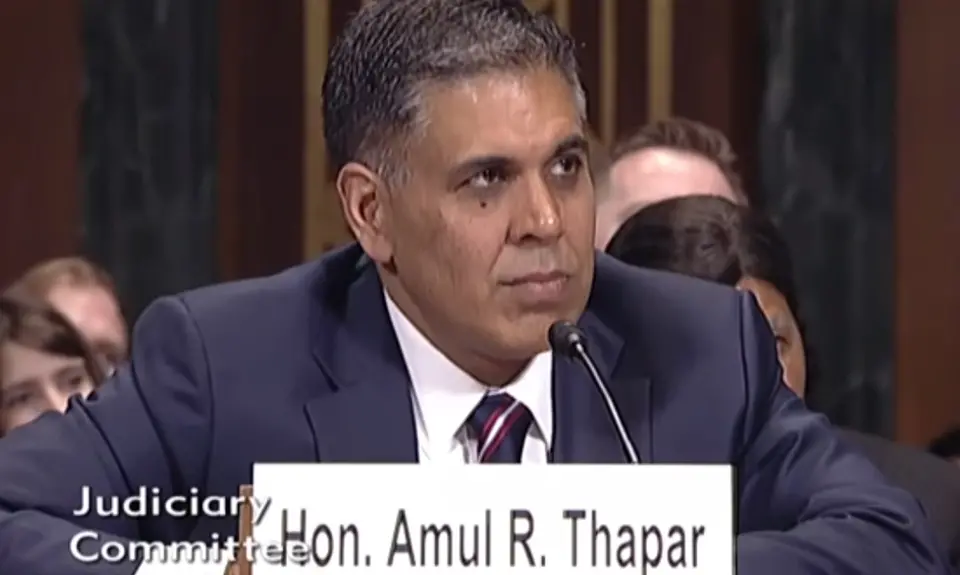“Confirmed Judges, Confirmed Fears” is a blog series documenting the harmful impact of President Trump’s judges on Americans’ rights and liberties. Cases in the series can be found by issue and by judge at this link.
Trump Sixth Circuit judge Amul Thapar argued in dissent that the court should affirm a district court ruling and dismiss without trial a claim that a corporation had improperly failed to make retirement plan payments on behalf of its union employees. The court majority rejected that view, found that there were disputed issues of material fact, and sent the case back to the lower court for trial in its February 2021 decision in National Electrical Annuity Plan v Henkels & McCoy Inc.
The International Brotherhood of Electrical Workers (IBEW) entered into an agreement with national construction company Henkels & McCoy (HM), under which HM would make contributions for work performed by union members in Michigan for an annuity and retirement fund for workers, which is administered by the National Electrical Annuity Plan (NEAP). NEAP sued HM for more than $350,000 in contributions that it failed to make relating to a Verizon fiber-optics cable installation project on which union members had worked. The district court dismissed the case on summary judgment and without trial , however, agreeing with HM that the project was “outside telephone work” that was exempted by an amendment to the IBEW agreement.
In a 2-1 decision written by Reagan appointee Danny Boggs, a panel of the Sixth Circuit reversed. Boggs noted that the term “outside telephone work” was not defined in the contract and, using “all the interpretive tools available” to the court, it remained “ambiguous.” For example, although HM contended that the term includes fiber-optic cable work related to telephonic communications, Boggs pointed out that the contract “separately identifies” the two terms, which standard rules of contract interpretation suggest means that the two terms mean “something different.” According to the record, Boggs stated, HN had previously made “$540,000 in contributions” for such fiber-optic work, which it now claims was an “administrative error.” Based on all the evidence, the majority concluded, a “reasonable factfinder” could conclude that the parties intended “outside telephone work” either to “exclude” or “include” fiber-optics work, so there was a “genuine dispute of material fact” and summary judgment was improper.
Trump judge Thapar dissented. He claimed that his view of “common sense” and “normal interpretive principles” lead to the conclusion that “outside telephone work” includes work on fiber-optic cable and that summary judgment for HM and against the workers as represented by NEAP should be affirmed.
Fortunately, based on its more complete review of the entire record, the majority did not adopt Thapar’s narrow view and sent the case back to the district court so that there will be an opportunity to prove that HP should contribute fully to union workers’ pension and annuity fund.
